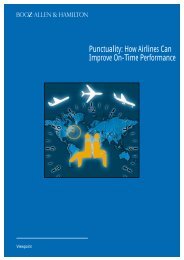The sentence
The sentence
The sentence
You also want an ePaper? Increase the reach of your titles
YUMPU automatically turns print PDFs into web optimized ePapers that Google loves.
F. Intensifiers<br />
‘Very’, ‘too’ and ‘very much’<br />
1. Intensifiers are words like very and too which strengthen adjectives and adverbs.<br />
2. We use very to strengthen:<br />
- the positive form of adjectives (not comparative/superlative): Martha has been very<br />
ill.<br />
- adjective + noun: John is a very nice man.<br />
- adverbs: <strong>The</strong> wheels of bureaucracy turn very slowly.<br />
- many past participle adjectival forms: I’m very interested. You’re very mistaken.<br />
<strong>The</strong> very goes with best/worst: It’s the very best/the very worst meal I’ve ever had.<br />
and some nouns (beginning/end): I wanted till the very end of the film.<br />
3. Too goes before adjectives and adverbs and means ‘more than is desirable’:<br />
Compare: It’s very hot, but I can drink it. It’s too hot and I can‘t drink it.<br />
It’s often more polite to say not very good or not too good rather than ‘bad’:<br />
His work’s not very good/not too good. (<strong>The</strong>re is no difference in meaning here.)<br />
4. Very much goes with:<br />
- comparatives: She is very much better.<br />
- verbs: I like your painting very much. This idea has very much interested me.<br />
- adjectives like afraid, awake, alive and alone: Old Mrs Page is very much alone.<br />
Adverbs in place of ‘very’: ‘extremely happy’, ‘fast asleep’<br />
1. We often use extremely and really for special emphasis instead of very:<br />
I’m very sleepy. → I’m extremely sleepy. (more emphatic)<br />
2. In everyday speech we often use terribly and awfully in place of very:<br />
That hi fi is very expensive. → It’s awfully/terribly expensive.<br />
3. Note that we say fast asleep and wide awake (Not *very asleep/very awake*):<br />
Don’t disturb the children – they’re fast asleep.<br />
4. We use some –ly adverbs in fixed phrases: deeply hurt, painfully embarrassed, highly<br />
respected, richly deserved, I greatly appreciate, badly needed, bitterly cold:<br />
Mr Wilson is highly respected in our community.<br />
A new playground for our children is badly needed.<br />
G. Focus adverbs<br />
‘Even’, ‘only’, ‘just’ and ‘simply’ for ‘focusing’<br />
1. We can change the position in a <strong>sentence</strong> of adverbs like even, only, just and simply<br />
depending on where we want to ‘focus our attention’. Compare:<br />
Even I understood Professor Boffin’s lecture. (i.e. even though I’m stupid)<br />
I even understood Professor Boffin’s lecture. (i.e. out of various things I understood)<br />
2. In everyday speech, we often put these adverbs before the verb and other people can<br />
understand what we mean from stress and intonation: I only asked a question means<br />
‘that’s all I did’ rather than ‘I was the only person who asked a question’.<br />
43




